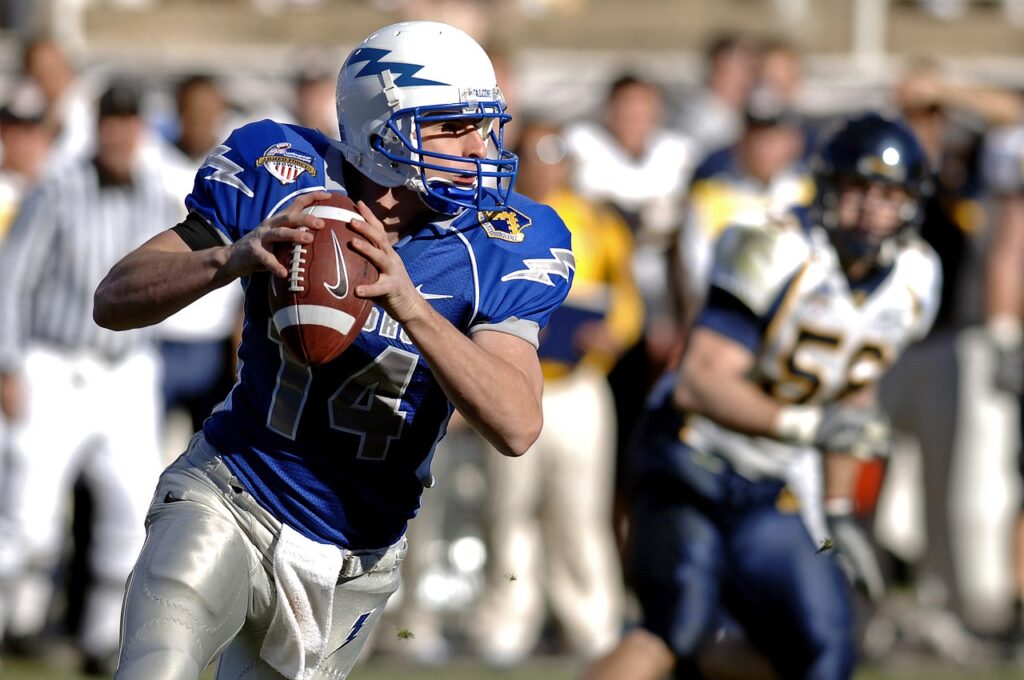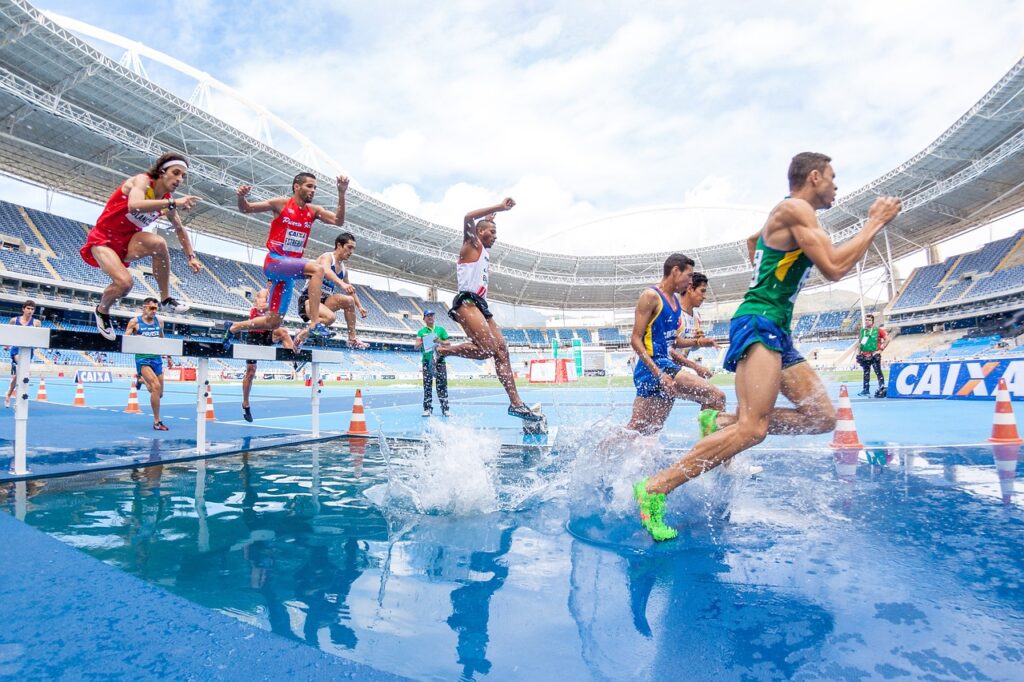Sports psychology is the study of psychological factors that impact athletic performance, with the goal of helping athletes enhance their mental skills and overall well-being.
As key professionals in the athletic world, sports psychologists play a crucial role in addressing mental health concerns, improving motivation, and fostering effective teamwork among athletes. With an increasing emphasis on mental health and performance optimization in athletics, the demand for sports psychologists continues to rise in professional sports teams and individual athletes alike.
Pursuing a career in sports psychology requires a combination of formal education, practical experience, and professional development, ultimately leading to a rewarding and impactful profession.
Understanding Sports Psychology
Sports psychology is a specialized field that focuses on understanding and improving the mental and emotional aspects of sports performance. It encompasses a wide range of concepts and techniques aimed at assisting athletes to reach their full potential, both on and off the field.
Performance psychology is a key component of sports psychology, which delves into factors that influence an athlete’s performance, such as motivation, concentration, stress management, and self-confidence. By addressing these areas, sports psychologists help athletes develop mental toughness and resilience, ultimately contributing to improved performance.
The role of sports psychologists is crucial in providing athletes with the tools and support necessary to overcome challenges and achieve their goals. They work closely with athletes and coaches, offering tailored interventions to address specific mental and emotional needs. This can include one-on-one sessions, group workshops, and even working directly with teams to enhance overall team dynamics and cohesion.
By incorporating sports psychology principles and techniques into their training programs, athletes and coaches can reap numerous benefits. These include increased focus, better decision-making under pressure, improved stress management, and enhanced motivation. In turn, these factors contribute to higher levels of performance and a more enjoyable sports experience for both athletes and coaches alike.

Education Requirements for Sports Psychologists
Embarking on a career in sports psychology involves several stages of education and training, beginning with undergraduate studies and progressing through graduate and doctoral programs. Along the way, aspiring sports psychologists will need to meet various licensing and certification requirements.
Starting with a bachelor’s degree, it is recommended to major in psychology, sports science, or counseling. Relevant coursework should include subjects such as sports psychology, kinesiology, and exercise science. These courses provide a crucial understanding of the mental and physical aspects of sports performance.
Following the completion of a bachelor’s degree, aspiring sports psychologists should consider obtaining a master’s degree in psychology or a related field. This advanced degree allows for specialization in sports psychology through electives and research opportunities. A master’s degree equips candidates with the necessary knowledge and skills to excel in the field, laying the groundwork for a successful career.
Lastly, a doctoral degree is a requirement for licensure as a sports psychologist in most states. Prospective professionals must choose a doctoral program in psychology with a focus on sports psychology to ensure comprehensive training and expertise. A doctorate solidifies one’s understanding of the field and prepares you for the challenges and responsibilities of a licensed sports psychologist.
Licensure and Certification
Becoming a licensed and certified sports psychologist is crucial for establishing credibility and meeting professional requirements. This involves meeting state licensure requirements and obtaining board certification.
To meet state licensure requirements, sports psychologists must hold a doctorate in psychology and complete a supervised practice. Additionally, they must pass a state licensing exam to demonstrate their competence and readiness to practice in the field. Licensure ensures that sports psychologists adhere to the highest standards of professionalism and ethical conduct.
While not mandatory, obtaining board certification can further enhance credibility and job prospects. For example, the American Board of Sport Psychology (ABSP) offers certification to qualified professionals. Board certification demonstrates that a sports psychologist has met rigorous standards of knowledge, skills, and expertise in their field, making them more attractive to potential employers and clients.

Gaining Practical Experience in Sports Psychology
Hands-on experience is a vital component of a sports psychologist’s education and development. Fieldwork and internships provide opportunities to apply classroom learning to real-world situations, helping aspiring professionals gain the practical skills necessary for success in the field.
Participating in fieldwork and internships allows students to observe and work alongside experienced sports psychologists, gaining insights into the day-to-day responsibilities and challenges of the profession. These experiences help bridge the gap between theory and practice, fostering the development of essential skills and expertise.
Internships
Internship opportunities in sports psychology can be found in various settings, including sports organizations, athletic departments, and private practice settings. By exploring different environments, students can better understand the diverse career paths available within sports psychology and identify the areas that align with their interests and goals.
Throughout their internships, aspiring sports psychologists have the chance to develop key skills such as communication, empathy, and critical thinking. These practical experiences also allow them to establish professional relationships and expand their network within the field, setting the stage for a successful career in sports psychology.
Professional Organizations in Sports Psychology
Connecting with fellow professionals and staying abreast of industry advancements is crucial for sports psychologists. Joining professional organizations, such as the Association for Applied Sport Psychology (AASP), can provide invaluable networking opportunities, resources, and continuing education options.
Membership in organizations like the AASP connects sports psychologists with a community of like-minded professionals, fostering collaboration and the exchange of ideas. These organizations also offer resources and support to help members stay current on industry trends and best practices.

Developing Essential Skills and Qualities
To excel as a sports psychologist, it is important to develop specific skills and qualities that enable effective work with athletes, coaches, and teams.
Communication and interpersonal skills are vital for building rapport and trust with clients. Sports psychologists must be adept at conveying complex concepts clearly and empathetically, as well as actively listening to clients’ concerns and needs. Establishing strong relationships with athletes, coaches, and teams is essential for creating a supportive and productive environment.
Another important aspect is problem-solving skills. Sports psychologists must be capable of addressing the unique challenges faced by athletes, such as performance anxiety or injury rehabilitation. Developing tailored interventions and strategies for performance enhancement requires a deep understanding of psychological principles and the ability to apply them effectively in practice.
Career Opportunities and Networking
Sports psychologists can pursue various career opportunities in different work settings. Additionally, networking and building professional connections are essential for staying informed about industry trends and finding job prospects.
Potential work settings for sports psychologists include universities, sports teams, rehabilitation centers, and private practice. These settings offer diverse opportunities to provide counseling, performance enhancement training, and consultation to athletes, coaches, and teams.
Building networking and professional connections within the field is crucial for sports psychologists. Networking through conferences and professional organizations helps stay updated on industry trends and opens up potential job opportunities. Establishing relationships with fellow professionals and experts in the field also fosters collaboration and knowledge exchange, contributing to personal and professional growth.
Continuing Education and Professional Development
For sports psychologists, ongoing education and professional development are essential to stay current with research and best practices in the field. Engaging in research and publishing findings also contributes to the advancement of sports psychology and enhances career prospects.
Staying current with research and best practices is crucial for sports psychologists. Lifelong learning ensures they remain at the forefront of their profession, providing the most effective support to athletes, coaches, and teams. Various resources, such as professional organizations, conferences, and journals, offer opportunities for ongoing professional development and knowledge enhancement.
Engaging in research and publishing findings plays a significant role in advancing sports psychology as a field and solidifying one’s career prospects and credibility. By conducting studies and sharing results, sports psychologists contribute to the collective knowledge of the profession, fostering innovation and improving the quality of support provided to athletes and teams.

Additional Career Opportunities in Sports Psychology
There are a variety of career paths available for individuals interested in sports psychology, each with its unique benefits and opportunities for growth.
Athletic coaching is another career option for those with a background in sports psychology. Coaches are responsible for training and motivating athletes, with a focus on both physical and mental aspects of performance. Opportunities in athletic coaching can be found in schools, universities, and professional sports organizations, with varying salary and job outlook depending on the level of competition and experience.
Corporate consulting allows professionals to apply sports psychology principles in non-sports settings, such as businesses and organizations. This role may involve helping employees develop mental resilience, improve teamwork, and manage stress. Salaries and job prospects in corporate consulting vary, depending on factors such as industry, geographic location, and experience.
Other related careers include sports nutritionist, sports medicine, and sports performance consultant, offering additional avenues for professionals with a passion for sports and psychology to apply their skills and knowledge.
Path to Sports Psychology Success
In summary, a rewarding career in sports psychology involves obtaining relevant degrees, gaining pre-professional experience, and securing licensure and certification. Developing essential skills, exploring various career opportunities, and actively engaging in networking and professional development are also vital to success in this field. If you’re interested in pursuing a career in sports psychology, take the first step by exploring educational programs and resources at Pathways2Advancement.

